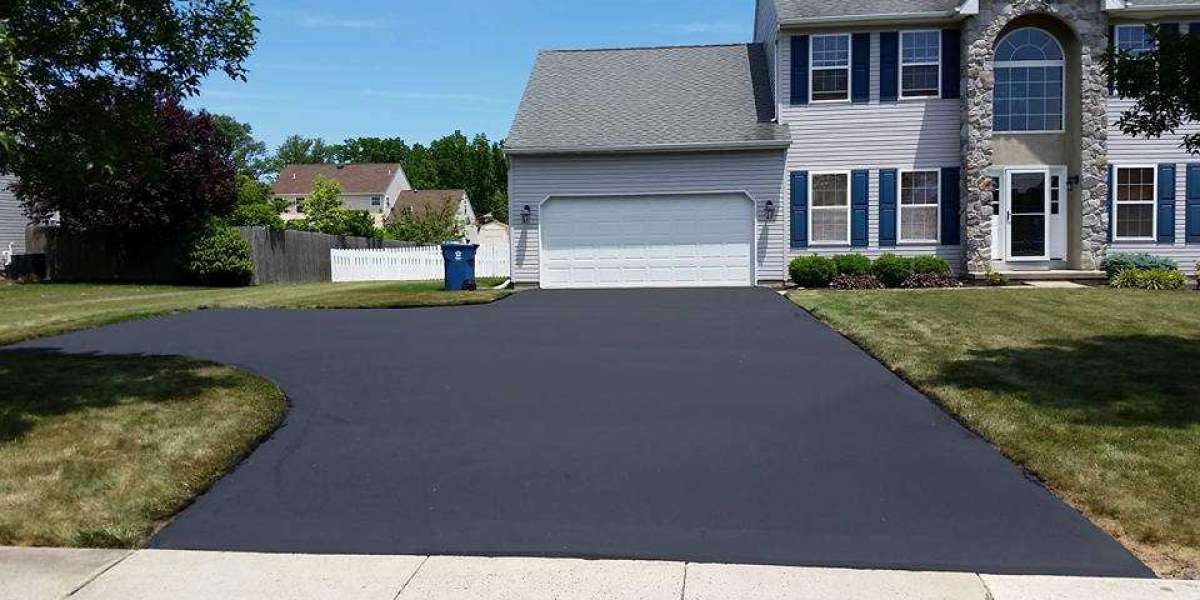A well-paved driveway enhances the aesthetic appeal and functionality of your property, providing a smooth, durable surface for vehicles and pedestrians. Whether you're installing a new driveway or replacing an old one, understanding the process and options available is essential for a successful project. This guide covers everything you need to know about residential driveway paving, from the benefits and materials to the installation process and maintenance tips.
Benefits of Residential Driveway Paving
Enhanced Curb Appeal: A professionally paved driveway significantly boosts your home's exterior appearance, creating a welcoming entrance and adding to the overall beauty of the property.
Increased Property Value: A well-maintained driveway can increase your home's market value, making it a worthwhile investment.
Durability: Paved driveways are designed to withstand heavy traffic and harsh weather conditions, offering a long-lasting, stable surface.
Low Maintenance: Compared to gravel or dirt driveways, paved surfaces require less upkeep, making them easier and more cost-effective to maintain.
Improved Safety: A smooth, even driveway surface reduces the risk of trips and falls, providing a safer environment for both pedestrians and vehicles.
Types of Driveway Paving Materials
Asphalt: Popular for its durability and cost-effectiveness, asphalt provides a smooth, black surface that is resistant to cracking and weather damage. Asphalt driveways can last 15-20 years with proper maintenance.
Concrete: Known for its longevity, a concrete driveway can last 30-40 years. It offers excellent durability and can be customized with various finishes and colors.
Pavers: These individual bricks or stones create a patterned surface that is both durable and aesthetically pleasing. Pavers are resistant to cracking and can be easily replaced if damaged.
Gravel: An affordable option that offers good drainage and a rustic appearance. However, gravel requires regular maintenance to keep the surface even and free of weeds.
Permeable Pavers: Environmentally friendly, these pavers allow water to pass through, reducing runoff and promoting groundwater recharge. They are durable and available in various designs.
The Residential Driveway Paving Process
Planning and Design
Location: Choose a location that provides easy access and good drainage.
Size and Shape: Determine the dimensions and layout based on your property and needs.
Permits and Regulations: Check local regulations and obtain any necessary permits.
Site Preparation
Clearing and Excavation: Remove existing driveway material, vegetation, and debris. Excavate the area to the required depth.
Base Installation: Lay a base layer of crushed stone or gravel and compact it to create a stable foundation.
Edging
Edging Materials: Use concrete, metal, or plastic edging to define the boundaries and support the paving material.
Paving
Asphalt or Concrete: Pour and spread the material evenly, ensuring a smooth surface.
Pavers: Arrange the individual pieces in the desired pattern, ensuring they are level and secure.
Finishing
Curing: Allow the material to cure completely. This may take several days for asphalt or concrete.
Sealing: Apply a sealant to protect the surface from weather damage and extend its lifespan.
Maintenance Tips for Paved Driveways
Regular Cleaning: Sweep the driveway regularly to remove dirt, leaves, and debris. Use a pressure washer periodically to clean the surface.
Crack Repair: Repair any cracks or potholes promptly to prevent further damage. Use appropriate repair materials for the paving type.
Sealing: Reapply sealant as needed to maintain the protective layer. Asphalt driveways typically need resealing every 2-3 years.
Snow and Ice Removal: Use a plastic shovel or snow blower to remove snow and ice. Avoid using metal shovels or harsh chemicals that can damage the surface.
Avoid Heavy Loads: Do not park heavy vehicles or equipment on the driveway for extended periods to prevent indentations and damage.
Conclusion
Residential driveway paving is a valuable home improvement project that enhances curb appeal, increases property value, and provides a durable, low-maintenance surface. By understanding the different paving materials, the installation process, and essential maintenance tips, homeowners can make informed decisions and achieve a successful, long-lasting driveway. Whether you choose asphalt, concrete, pavers, gravel, or permeable pavers, investing in a well-paved driveway is an investment in the beauty and functionality of your home.








